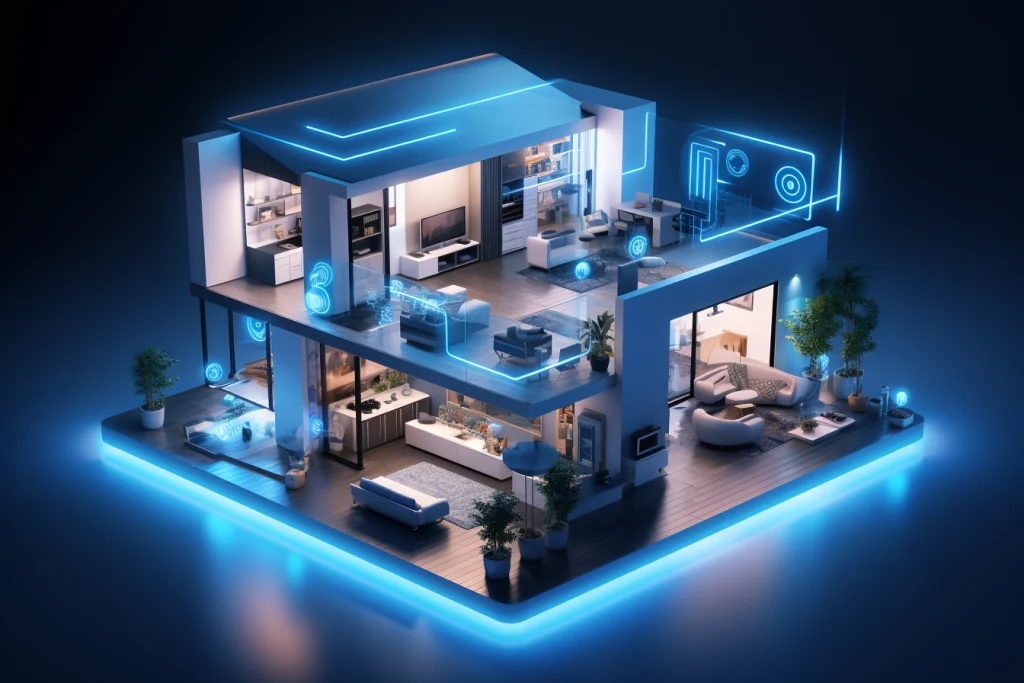Smart homes are transforming the way we live, offering unprecedented levels of convenience, efficiency, and connectivity. With the growing prevalence of Internet of Things (IoT) devices, homes are becoming increasingly automated, with features such as voice-controlled assistants, intelligent lighting systems, smart thermostats, and security cameras. However, as much as these innovations promise a more comfortable lifestyle, they also raise significant concerns, particularly regarding privacy. The balance between convenience and security in smart homes is a growing debate that warrants careful consideration.
The Convenience of Smart Homes
Smart homes are heralded for their ability to make everyday tasks easier and more efficient. Devices such as Amazon Alexa, Google Home, and Apple’s Siri allow users to control various aspects of their homes with voice commands or smartphone apps. These systems can adjust lighting, regulate temperature, lock doors, play music, or even order groceries—all with minimal effort. For example, a smart thermostat can learn your preferences and automatically adjust the temperature based on your schedule, leading to significant energy savings. Similarly, smart security systems provide real-time video feeds and alerts, offering peace of mind by monitoring homes remotely. In these ways, smart homes enhance convenience, save time, and make life more comfortable for the modern homeowner.
Privacy Concerns: The Dark Side of Connectivity
While smart homes promise convenience, they also create potential vulnerabilities related to privacy. Many smart devices are connected to the internet, constantly collecting data to improve their functionality. For instance, voice assistants like Alexa or Google Assistant record and analyze conversations to better understand user commands, raising concerns about what happens to this data once it’s collected. Hackers could potentially exploit these devices, gaining access to sensitive personal information, home security footage, or even control over appliances. In a worst-case scenario, cybercriminals could manipulate home systems, triggering alarms or unlocking doors. This intersection of convenience and risk makes the issue of data privacy in smart homes increasingly urgent, prompting calls for stronger security measures and clearer data usage policies.
Data Harvesting and Surveillance
The proliferation of smart home devices also raises significant concerns about data harvesting and surveillance. Devices such as smart speakers, security cameras, and even refrigerators are equipped with sensors that continuously collect data about your behavior, preferences, and daily routines. While this data is used to personalize experiences and improve functionality, it also creates a detailed digital footprint of your private life. Companies behind these devices often store vast amounts of data, which could be sold to third parties or used for targeted advertising. Moreover, some smart devices may be prone to breaches of privacy, with users unaware that they are being watched or listened to in their own homes. This growing surveillance culture challenges the notion of personal privacy in the digital age, leaving many to wonder where the line should be drawn between convenience and individual rights.
Smart Homes and Their Impact on Home Security
While smart security systems are touted as providing better protection, they also present new challenges to traditional security measures. Unlike conventional home security setups, smart systems rely heavily on the internet and wireless networks, which can be vulnerable to hacking. Intruders could potentially bypass security alarms, disable cameras, or manipulate smart locks remotely. Additionally, because smart security systems are integrated with other home automation features, a breach could give hackers more access to other sensitive areas of your home. For instance, a hacker who gains control of your smart thermostat could alter your home’s temperature settings or even disrupt heating and cooling systems during extreme weather conditions. As a result, while these systems can provide immediate alerts and remote access, they also open up potential vulnerabilities that traditional security measures never had to contend with.
Striking a Balance: Smart Homes and Ethical Considerations
The future of smart homes lies in striking a balance between convenience and privacy. As technology continues to advance, it is crucial for both manufacturers and consumers to prioritize security alongside innovation. Manufacturers must implement stronger encryption, more robust privacy policies, and transparency in how data is used. Consumers, on the other hand, should be informed and cautious when adopting new smart devices, ensuring they understand the potential risks and benefits. One solution could be adopting privacy-enhancing technologies, such as end-to-end encryption for communication between devices, and giving users greater control over the data they share. In this way, the rise of smart homes can continue to deliver on its promise of convenience, without compromising the privacy and security of individuals.
Conclusion
In conclusion, while smart homes offer significant advantages in terms of convenience and efficiency, they also introduce important privacy concerns that must be addressed. The growing reliance on interconnected devices and data collection presents potential risks to personal security and privacy. As the smart home ecosystem continues to evolve, it is essential to find a balance between the benefits of automation and the need to safeguard private information. By prioritizing security, transparency, and ethical practices, smart homes can continue to enhance our lives while minimizing potential threats to our privacy.


